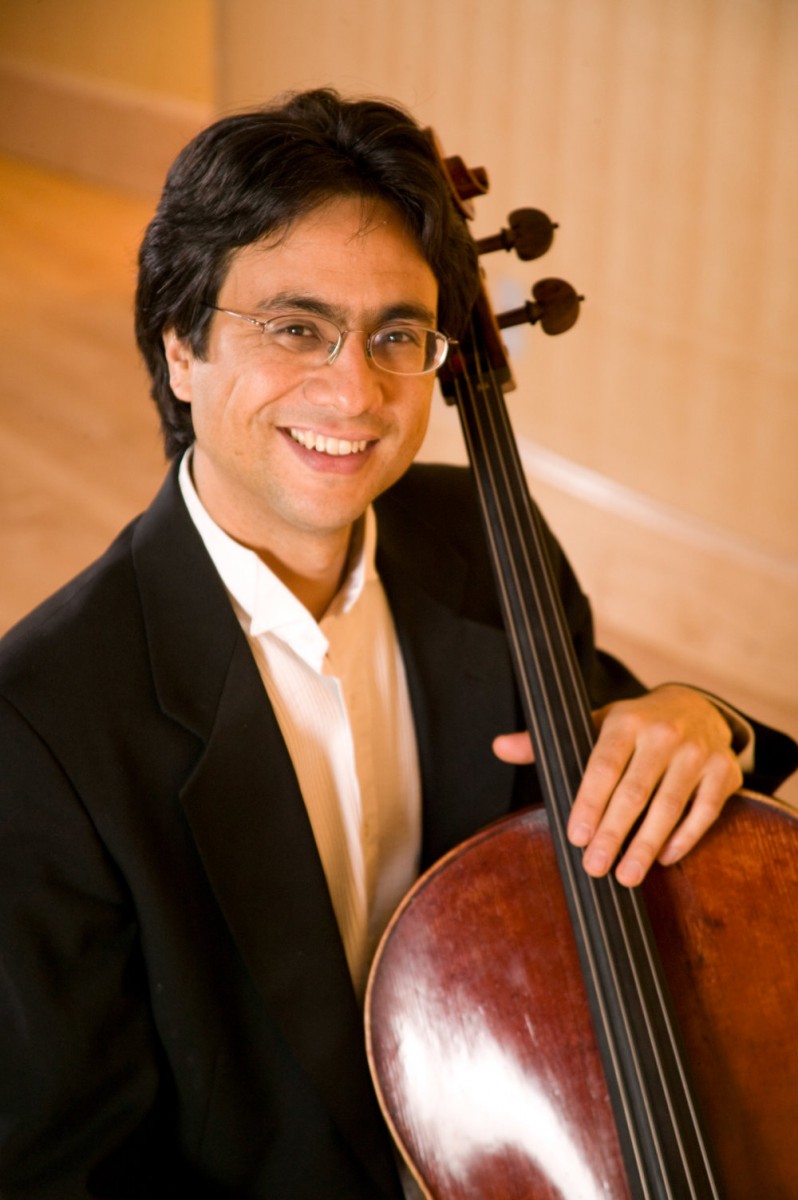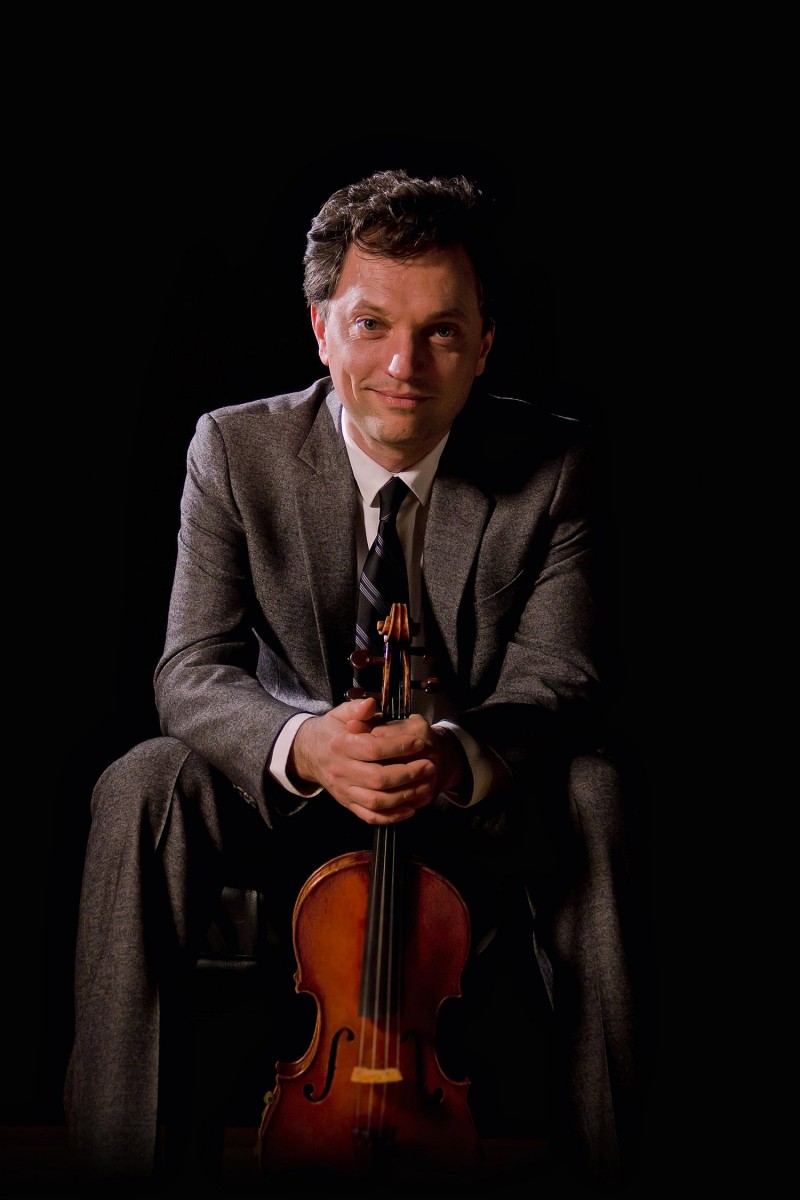Fiction will meet reality this weekend when strings ensemble, The Athena Quartet, plays several songs featured in Aja Gabel’s debut novel, The Ensemble.
The concert, which is the fourth in the Chautauqua Chamber Music Resident Artist Series, will begin at 4 p.m. Saturday in Elizabeth S. Lenna Hall.
Gabel is the Chautauqua Literary and Scientific Circle Week Four author, whose novel is about fictional strings group the Van Ness Quartet, the relationships of the four members and the ups and downs of their musical career together. The Athena Quartet is of the same instrumental composition as the Van Ness Quartet: two violinists, one cellist and one violist. Athena Quartet members are School of Music faculty Aaron Berofsky, violin faculty and chair of strings; Kathryn Votapek, viola instructor and chamber music coach; John Michel, cello faculty; and Yehonatan Berick, guest faculty and violinist.
The Athena Quartet will play two pieces from the 11 works mentioned in the book: Maurice Ravel’s String Quartet in F Major and Ludwig van Beethoven’s String Quartet No. 14 in C-sharp Minor, Op. 131.
“We picked two of probably the hardest pieces,” Berofsky said, “because they’re the greatest.”
In the book, the Van Ness Quartet plays the Ravel piece at a competition they end up winning. It is the only string quartet Ravel ever wrote, and despite the fact that it was not generally well-received when it first premiered in 1904, it has since become a standard of string quartet repertoire.
The piece is four movements and, along with Claude Debussy’s one and only String Quartet, is one of the two major Impressionist quartets.
“If you’re familiar with Impressionist painting, you’ll see the same kind of thing in an aural sense in this piece,” Votapek said. “Washes of color, more pastel, more outlines and shapes of things. … It’s not so much a traditional melody and accompaniment. As in (an Impressionist) painting, you won’t see a portrait and a background. It’s more about color and impressions.”
There are some exceptions to this in the second movement, which at times resembles pointillism in that it has many pizzicato notes, which are very short, quick and pointed.
“The second violin and the viola … have the incredible feat to create this sort of filigree of sound, these notes that just go by so quickly to create this sort of pointillistic effect,” Michel said.
The Beethoven quartet is a major contrast to Ravel’s piece; it is seven movements, with stark variations in tone and mood from movement to movement.
“In that journey, he takes us through every possible sentiment and character you can imagine, it seems like … from one extreme to the other,” Michel said.
Beethoven composed this quartet near the end of his life, after he had gone completely deaf and could not even hear what he was creating. One might expect that a piece written by a musician robbed of his hearing would be somber and grave, Michel said, and though this is certainly true of parts of Op. 131, especially the first movement, it also features many moments of lightness and cheerfulness.
The piece is notoriously difficult to play, Berofsky said, and although it is seven movements long, there are no pauses between each one — culminating in about 40 minutes of non-stop playing. In The Ensemble, the Van Ness Quartet play the piece at a memorial for the victims of 9/11.
“(In the book) somehow this music finally transcended all the stuff (the characters) had been dealing with up to this point,” Votapek said. “It was just music — music for comfort, music for reflection. … It was not about them at all, it was about music and about life in a larger sense.”
For the most part, the members of The Athena Quartet don’t identify with the personalities of the musicians in the novel, but they very much recognized the intense and difficult world of chamber music described in its pages.
“All of the struggle and the interpersonal relationships — who’s going to be responsible for what, the give and take, how much are you willing to sacrifice of yourself and your point of view, how much are you willing to compromise … it made a lot of sense to me,” Berofsky said.
Typically, collaborations between music and literature have not been especially common at Chautauqua, but the recital is a fitting transition into Week Five, “The Life of the Spoken Word.”








